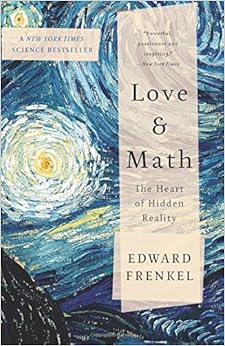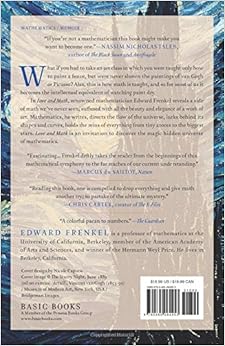From Publishers Weekly
U.C. Berkley mathematician Frenkel reveals the joy of pure intellectual discovery in this autobiographical story of determination, passion, and the Langlands program—a sort of Grand Unified Field Theory of mathematics. As a teenager Frenkel was converted from math hater to eager theorist by a mathematical friend of the family, enough to pursue it despite his struggles against an unapologetically anti-Semitic Soviet educational system. Frenkel writes casually of climbing over the fence to sit in on advanced classes at Moscow State University, a top school that didn&'t accept Jews. With the help of mentors, he worked hard and eventually found his way to Harvard and the freedom to focus on his research. Frenkel balances autobiographical narrative with enthusiastic discussions of his own work on the Langlands program, a web of algebraic conjectures named after a Canadian mathematician that is noted for its usefulness in organizing seemingly chaotic data into regular patterns full of symmetry and harmony, and its applications to quantum theory. While the math can be heavy going, Frenkel&'s gusto will draw readers into his own quest, pursuing the deepest realities of mathematics as if it were a giant jigsaw puzzle, in which no one knows what the final image is going to look like. B&w illus. (Oct.)
--This text refers to the
Hardcover
edition.
After Rick and Isla meet at a dinner party and fall in love, what’s next? For Frenkel, it is the mathematical charting of the Rick-Isla relationship as a trajectory on the x-y plane. The surprising notion of a “formula of love” fits into the remarkable understanding of math Frankel unfolds as he recounts his labors on conceptual frontiers where an audacious new master theory, the Langlands Program, is linking geometry, number theory, and algebra. To qualify for a role in those labors, Frenkel defied the anti-Semitism pervading the Soviet academic world in which he came of age and then won appointment to a Harvard professorship. Aware that few of his readers share his academic training, Frenkel pares the technical details to a minimum as he reflects on the platonic transcendence of mathematical concepts and marvels at their mysterious utility in explaining physical phenomena. Not merely dry formulas in textbooks, the math Frenkel celebrates fosters freedom and, yes, even distills the essence of love. A breathtaking personal and intellectual odyssey. --Bryce Christensen
--This text refers to the
Hardcover
edition.







